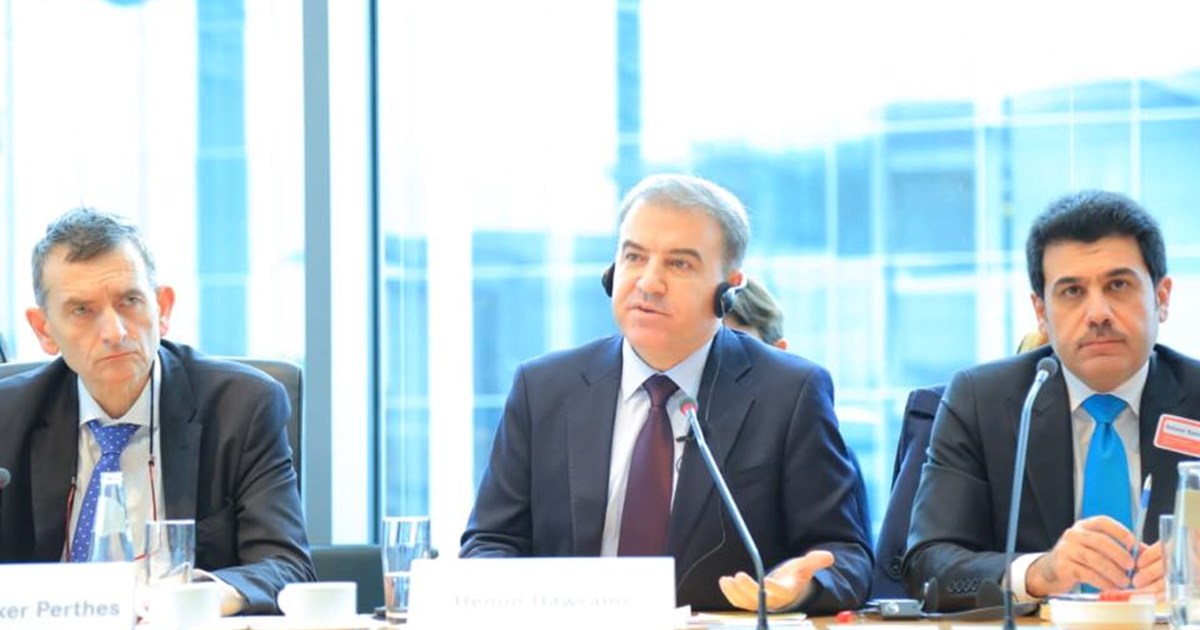Deputy Speaker Hawrami speaks at German Parliament conference on the Kurdish Question in the Middle East

Kurdistan Parliament Deputy Speaker Hemin Hawrami on 6 March at the German Parliament spoke at a conference on ‘Opportunities and prospects for solving the Kurdish Question in the Middle East.’ He led a cross-party delegation of MPs to Berlin, the German capital.
Deputy Speaker Hawrami and four MPs of the Kurdistan Parliament were invited by Ms. Helin Evrim Sommer MP (Left Party), who organized the conference at the German Parliament in Berlin.
The MPs in the cross-party delegation were Dr. Rebwar Babkayi (KDP), Mr. Karwan Gaznayi (PUK), Ms. Ashna Abdalla (Change Movement) and Klara Bafro (Assyrian Syriac Chaldean Democratic Council).
German MPs who spoke at the conference included Ms. Claudia Roth (Green Party), the Vice President of the German Parliament; Dr. Daniela De Ridder, Vice Chair of the Foreign Affairs Committee (Social Democratic Party, SPD); and Mr. Stefan Liebich, Foreign Policy Spokesman of the Left coalition.
Mr. Hawrami thanked Germany and other partners in the international coalition for their support and training for the Peshmerga forces in the war against ISIS. He said that all the political parties and leadership of Kurdistan believe continued international coalition support is essential to counter the threat of ISIS returning.
The Deputy Speaker said that Kurdistan Region hopes to see more German support for institution building, vocational training and commerce, to help strengthen Kurdistan’s institutions and economy.
On the situation of Kurds and other ethnic and religious components of Iraq, the Deputy Speaker said that Kurdistan Region insists on respect for our institutions and for our constitutional autonomy and authority within Federal Iraq, as set out in the Iraqi Constitution. Kurdistan will continue dialogue with Baghdad to reach an agreement on all outstanding issues, he said.
Mr. Hawrami said that Kurdistan Region supports peaceful means and dialogue to find solutions to the Kurdish question in other countries. Armed conflict and violence would not help to achieve rights, he said.